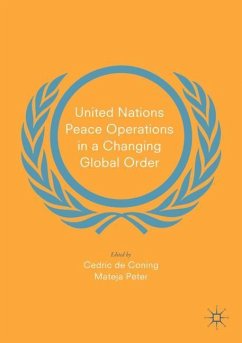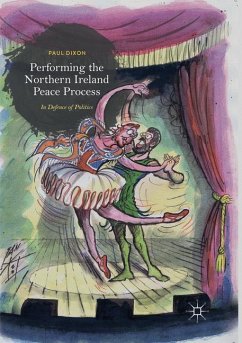
The Era of Private Peacemakers
A New Dialogic Approach to Mediation
Versandkostenfrei!
Versandfertig in 6-10 Tagen
36,99 €
inkl. MwSt.
Weitere Ausgaben:

PAYBACK Punkte
18 °P sammeln!
The field of peacemaking is in turbulent change. There are more peacemaking actors than before but fewer success stories, and an increasing number of violent conflicts tend to resist negotiated agreements. Tools and practices created for traditional inter- and intra-state conflicts have become ineffective and revision of old mediation practices is called for. This book examines how the private peacemaking organisations have faced this challenge. In the 21st century, private peacemakers have become a central part of peace diplomacy and have appeared as flexible actors whose innovative thinking ...
The field of peacemaking is in turbulent change. There are more peacemaking actors than before but fewer success stories, and an increasing number of violent conflicts tend to resist negotiated agreements. Tools and practices created for traditional inter- and intra-state conflicts have become ineffective and revision of old mediation practices is called for. This book examines how the private peacemaking organisations have faced this challenge. In the 21st century, private peacemakers have become a central part of peace diplomacy and have appeared as flexible actors whose innovative thinking paves the way for reconsidering and reinventing old practices of mediation. Instead of emphasizing the act of resolution, a new emphasis is given to the transformation of violence into a peace system, the complexity of conflict and the inadequateness of rational management. Furthermore, this shift has brought civic society actors from the field of reconciliation to the field of peace mediation.This new pragmatic approach under development can be called dialogic mediation.












